Garden pests are the worst! They ruin all your hard work, eat all those fresh, delicious vegetables you were planning to harvest, and generally wreak havoc everywhere. Dealing with pest infestations early and quickly is essential to save the plants, but it comes at a high cost if done with chemicals. And, that cost isn't just financial; chemicals hurt our gardens for the long-term. Using natural solutions like organic pesticides is infinitely better for your vegetable plants and the overall health of the garden.
Jump to:
- Why Not Use Chemical Pesticides?
- Top 10 Natural Pesticides And How To Use Them
- The Basic Insect Eliminator
- The Step-Up Insect Eliminator
- Flower Power Pesticide
- Tobacco Punch
- Tomato Leaf Aphid Pest Relief
- Simple Salt Spray
- Naturally Neem Oil
- The Diatomaceous Earth Deterrent
- Mother Nature's Natural Pest Fighters
Why Not Use Chemical Pesticides?
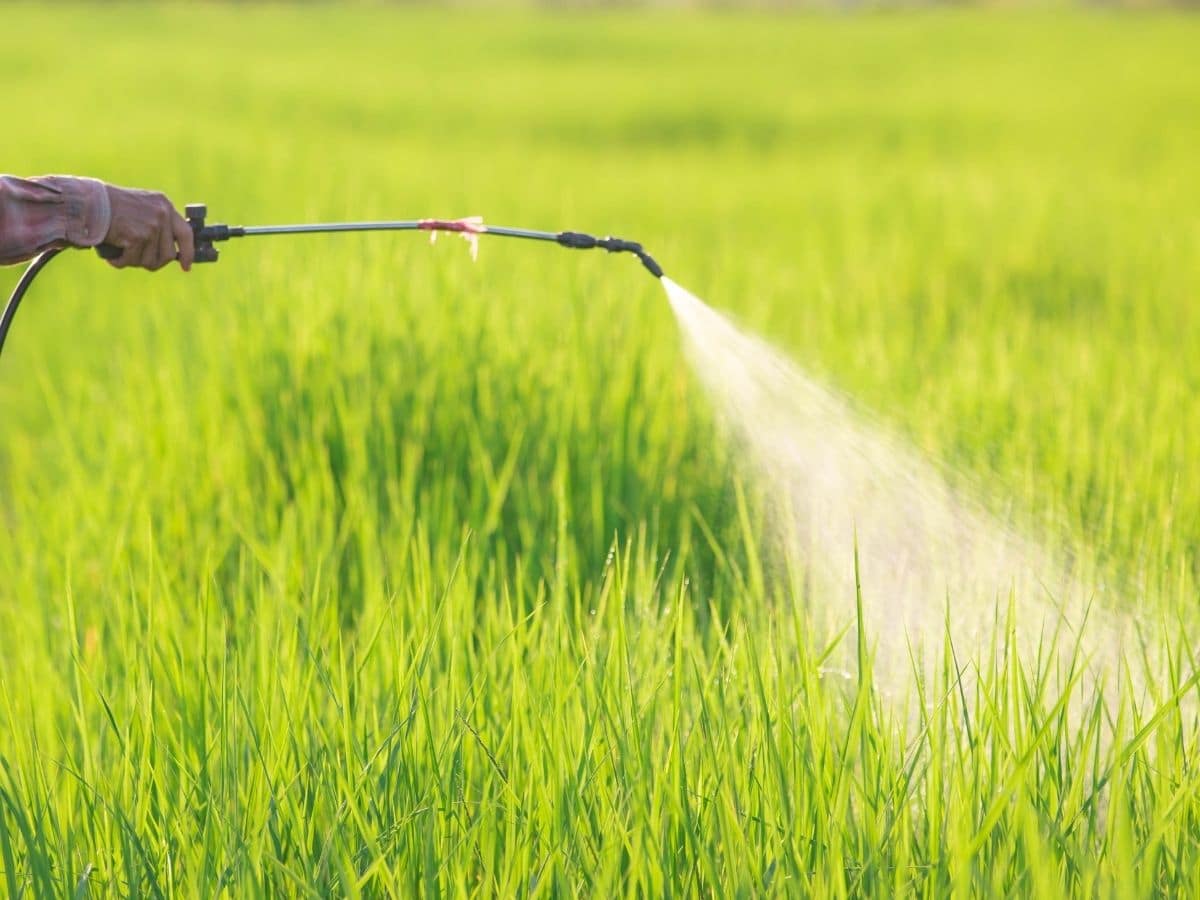
The biggest issue with using chemical pesticides is that they don't differentiate between insects that are pests and those that are beneficial. Bees, butterflies, and ladybugs are often killed along with the targeted bugs. This is bad; very bad! Our gardens desperately need as many natural pollinators and predators as possible to keep pests off the plants and our plants growing strong and healthy.
Natural pesticides mostly have the same issue in that they don't differentiate between pests and beneficial insects. But, the applications are less toxic thanks to the use of natural products, don't spread as easily, and are less likely to have a huge impact on any plants except those that are sprayed. Human-made chemicals for pest control often include elements to make them last longer, have a broader impact, and get into the soil and water. Using natural pesticides may mean you have to apply them more often, which means more work for you, but it is worth it!
Chemical pesticides also can leave residue on vegetables, which means you could be eating the pesticide while you enjoy that nice, fresh, juicy tomato. A good washing usually will rid the vegetables of pesticides, but not always, and not all of it. It's best not to take chances with our health or our family's health.
Lastly, chemical pesticides get into our soil and stay there for years. Soil is a complex living organism, and healthy soil is essential for a healthy, productive garden. If we destroy the soil, nothing will grow in it; it's that simple.
Top 10 Natural Pesticides And How To Use Them
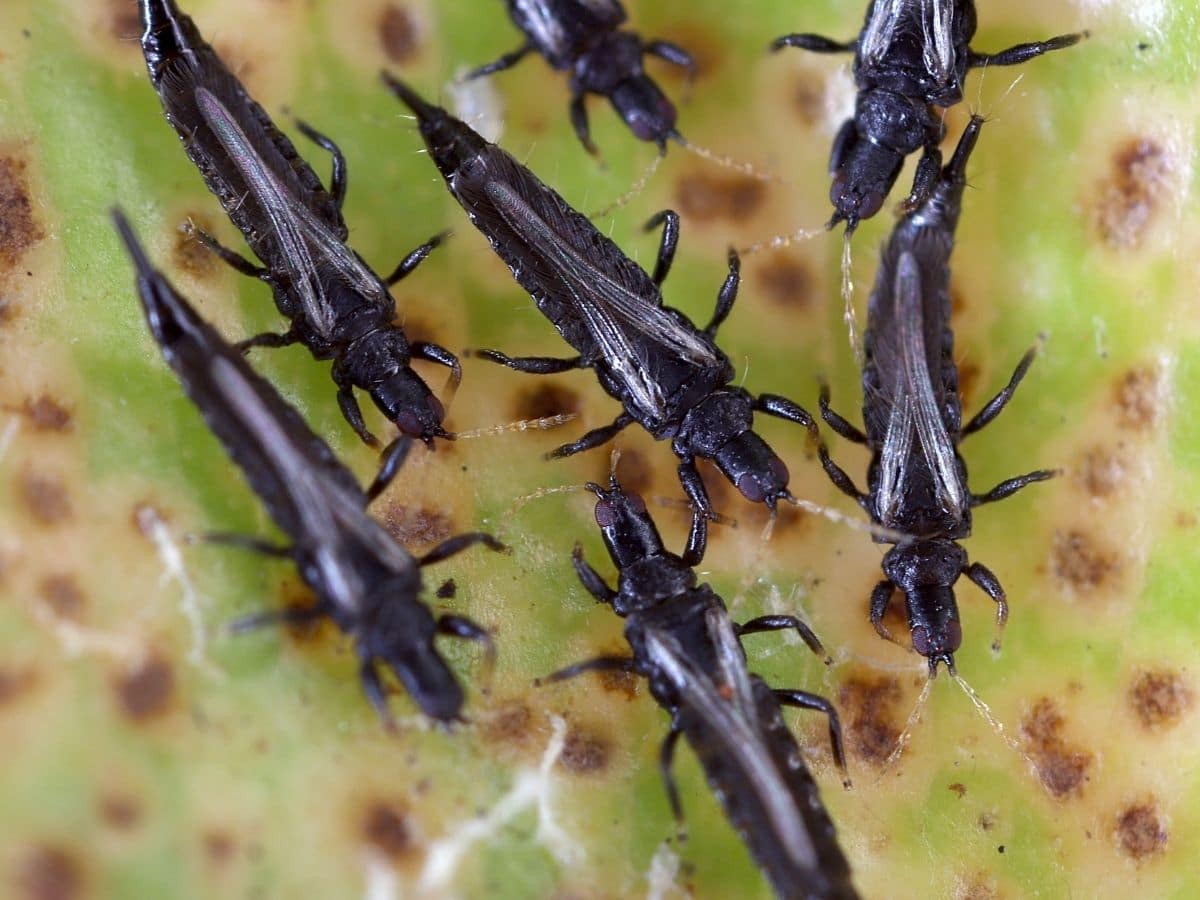
Whether you're struggling with aphids or beetles, or an influx of ants, there are many natural, effective solutions.
The Basic Insect Eliminator
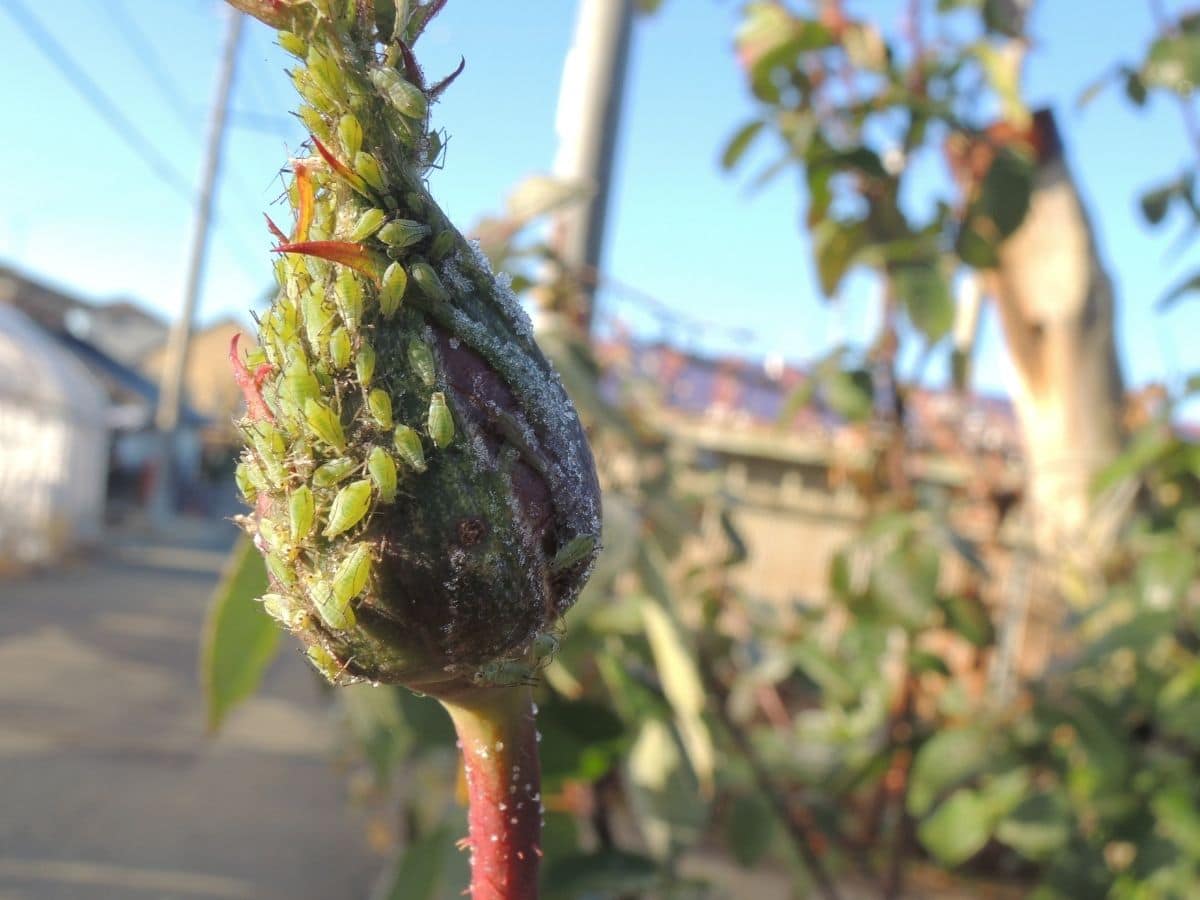
This super simple natural pesticide mix is made with ingredients you likely have already in your home. It's easy to make, is non-toxic to humans, and best of all gets rid of a lot of pests! This pesticide works to kill aphids, thrips, mites, whiteflies, insect larvae, and other soft-bodied insects. The soap causes the coating on the insect's body to wash away, leading the bugs to dry out and die. The addition of oil ensures the mix coats the insects' entire body. In addition to being an effective pest-killer, this spray does little harm to beneficial insects since they are generally not eating the leaves where you are spraying.
Formula:
- Mix 1 quart of warm water with 1 tablespoon oil and 2 teaspoons of natural liquid soap (we recommend Dr. Bronner's or something similar). Only use natural soaps since other types may contain additives that are dangerous for your plants.
- Shake it well, put it in a spray bottle.
- Apply it to infested plants, making sure to get both sides of leaves.
The Step-Up Insect Eliminator
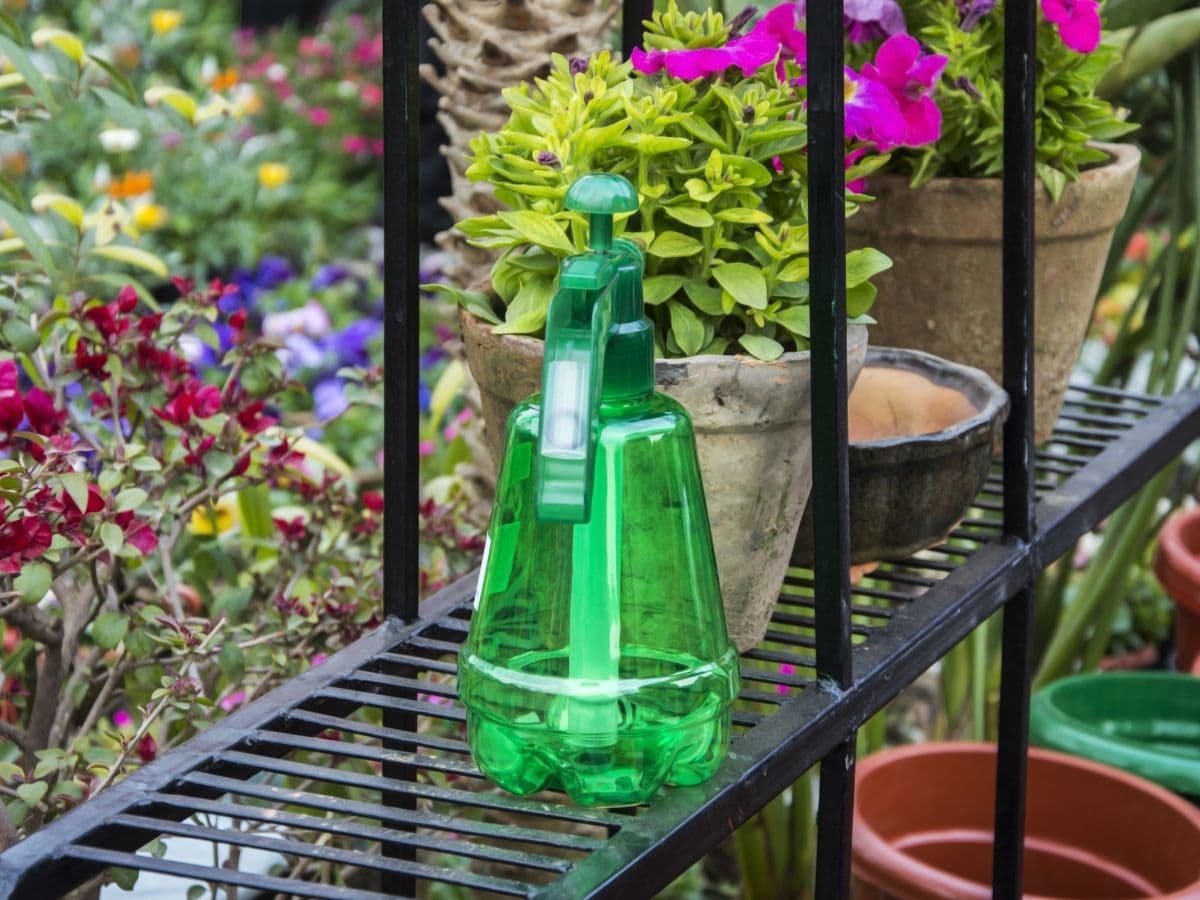
The Basic Insect Eliminator Formula is excellent at combating and killing soft-bodied pests. To increase its overall effectiveness, though, add a blend of essential oils. In addition to killing the pests, the strong-smelling oils will deter future infestations because pests hate the smell. Aphids, ants, fleas, spider mites, and squash bugs don't like the smell of peppermint. Rosemary is used to deter flies, fleas, and cabbage looper larvae, and citrus keeps ants and mosquitoes away. Moths dislike cedarwood, peppermint, and citrus. Eucalyptus oil deters whiteflies, aphids, mites, and earwigs.
Formula:
- Create the essential oil mix first. Add 20 drops each of peppermint, rosemary, citrus, cedarwood, and eucalyptus oil to one ounce of water.
- When you are ready to use it in the garden, mix 10 drops of your essential oil mix with 1 quart of water and 2 teaspoons of natural liquid soap (we recommend Dr. Bronner's or something similar). Only use natural soaps since other types may contain additives that are dangerous for your plants.
- Shake it well, put it in a spray bottle.
- Apply it to infested plants.
The Super Advanced Insect Eliminator
If you need to up the potency, an even bigger notch for particularly troublesome pests, try this mix. Like the basic combination, this is best for fighting soft-bodied insects like aphids, whiteflies, thrips, and mites on leaves. It also works wonderfully at deterring rabbits and deer from helping themselves to the garden.
Formula:
Be sure to wear gloves and eye protectors so that cayenne doesn't get into your eyes or pores!!
- Combine three garlic bulbs and one small onion in a blender and puree.
- Then add one teaspoon of cayenne pepper powder.
- Let the mixture sit overnight to steep.
- Strain the solids out and reserve the liquid. The garlic cloves and onion remains can be added to your compost.
- Add the reserved liquid to 1 quart of warm water
- Also add 1 tablespoon oil and 2 teaspoons of natural liquid soap (we recommend Dr. Bronner's or something similar).
- Shake it well, put it in a spray bottle.
- Apply to infested plants.
Flower Power Pesticide
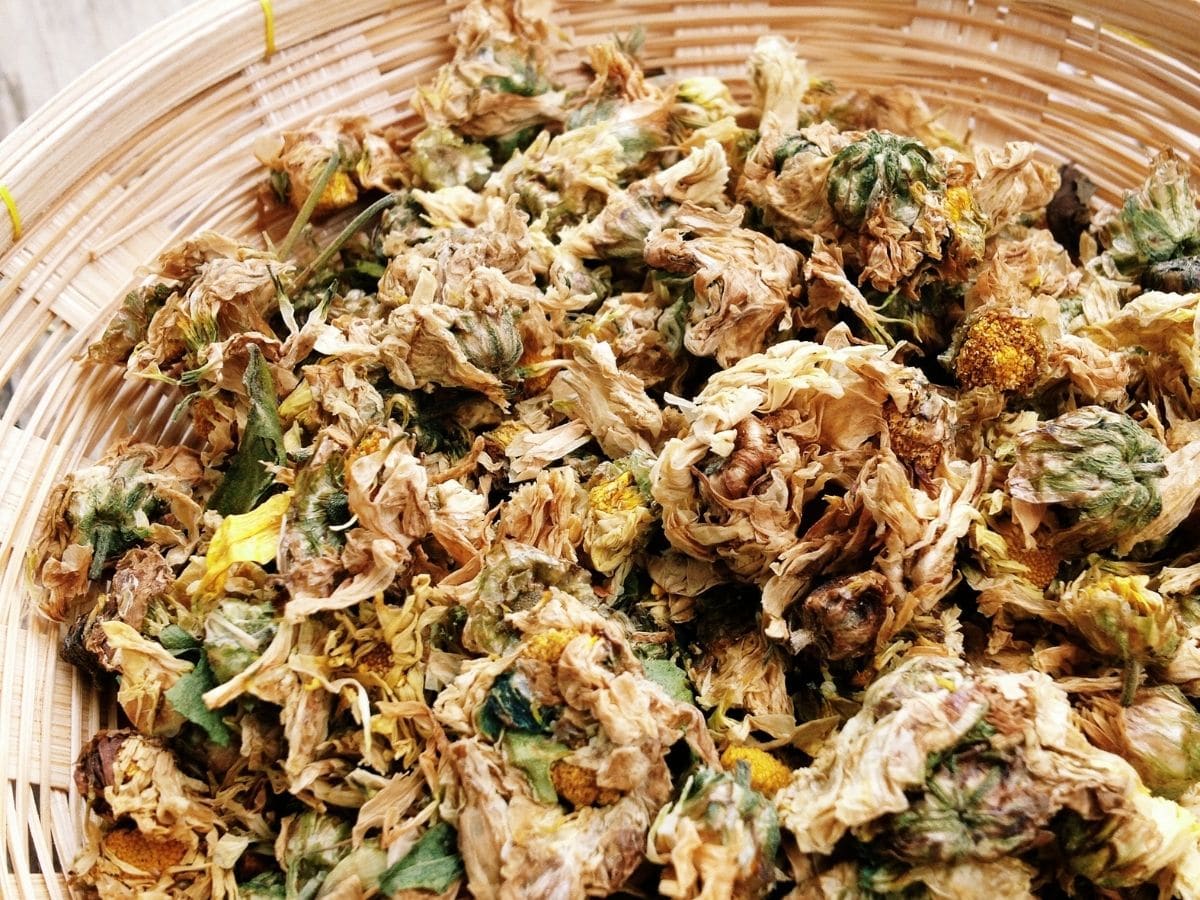
Some chrysanthemum flowers contain pyrethrins, a natural toxin. This toxin is a common element in synthetic pesticides, but it is made to be more toxic and includes other chemicals to increase toxicity. Basically, synthetic pyrethrin mixes contain lots of other potentially dangerous ingredients, many of which aren't mentioned on the label. Do not fall for the "natural" claim on these bottles; while the original inspiration may have been natural, these pesticides are far from organic or natural in any way. Many of them stay in the soil and plants for months.
Using the natural form from the actual flowers isn't as potent as the chemical version, but it is much safer for everyone. It has a short life, doesn't persist in the soil, and only kills the bugs present at the application time. Not all chrysanthemums contain this natural toxin, so you have to be sure you get the right ones if you're going to make this insect-fighting tea. Chrysanthemum cinerariifolium (the Dalmatian daisy or chrysanthemum) and Chrysanthemum coccineum (the Persian daisy chrysanthemum) are the two that can be used.
Flower Power pesticide is best used to combat cucumber beetles, squash bugs, cutworms, armyworms, aphids, whiteflies, and the Colorado potato beetle. Because this toxin can harm useful insects, it is essential to protect the beneficial bugs. Apply the spray early in the morning, before bees and butterflies start moving around. Then, cover the treated rows for 24 hours with a tarp or sheet to keep them out.
Formula #1:
- Dry fresh-picked flowers in a dry, dark, cool location.
- Grind them up until they are a fine powder. Wear a mask and use caution, as the powder may irritate the respiratory system.
- Mix ¼ cup of powder with 1-quart water and pour in a spray bottle.
- Shake well.
You may need to adjust the ratio; the toxicity of home-grown flowers is highly varied.
Formula #2:
- Combine one cup of packed fresh-picked flower heads with ⅛ cup isopropyl alcohol.
- Let sit for 3 days.
- Strain the mixture and store it in a labeled container.
- To use, combine ½ cup with 2 quarts of water and put in a spray bottle.
Tobacco Punch

We all know nicotine is dangerous for humans, but did you know it's also bad for insect pests? Tobacco is a natural pest remedy that has been used for hundreds of years, and it works! Tobacco punch pesticide is best used against soft-bodied insects like aphids and pests like slugs. Home-grown tobacco leaf works best, but you can also use a natural store-bought rolling tobacco.
Formula:
- Combine one cup of dried tobacco with one gallon of hot water.
- Let it soak for 2 days.
- Strain and add one teaspoon of natural liquid soap.
- Put in a spray bottle
- Apply on affected plants as needed.
Tomato Leaf Aphid Pest Relief
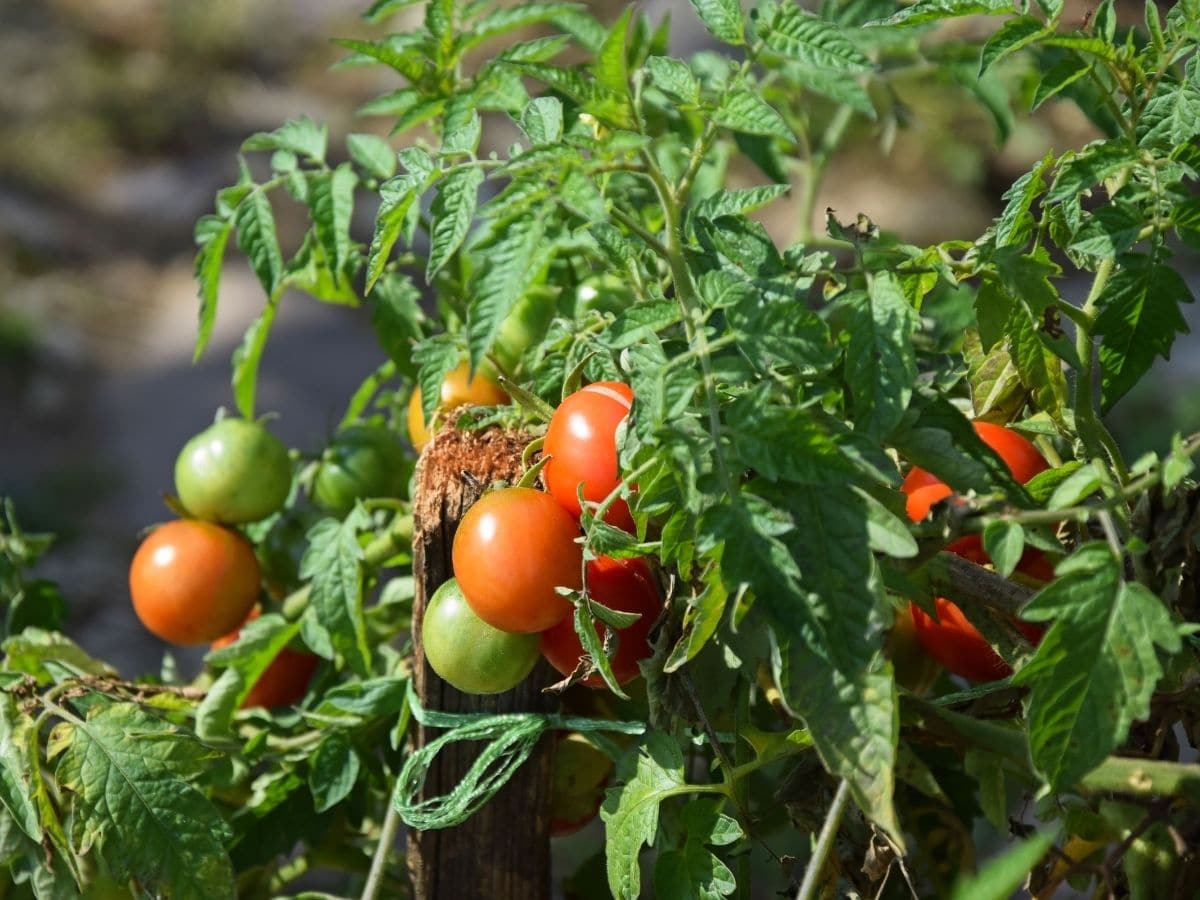
**If you are allergic to nightshade plants, you may want to skip this one**
Tomatoes, like tobacco, are part of the nightshade family and contain natural toxins in their foliage. The alkaloids in tomato leaves are effective in combating aphid infestations as well as other soft-bodied insects.
Formula:
- Finely chop two cups of tomato leaves and combine them with two cups of warm water.
- Let the mixture sit for 24 hours.
- Strain the leaves out and add two more cups of water.
- Put in a spray bottle
- Apply to infected plants.
Simple Salt Spray

It's so simple; it's a no-brainer when combating aphids, slugs, and snails. A salt solution deters pests from hanging out on leaves and having lunch. Snails and slugs intensely dislike the feel of salt on their soft bodies and will avoid it. In small amounts, salt is also great for the garden as it helps the plants absorb nutrients from the soil. In large quantities, it can be detrimental and cause leaf burn, so don't overdo it with the salt spray!
Formula:
- Combine ¼ cup Epsom salts with 2 quarts of water.
- Shake, so salts dissolve.
- Put in a spray bottle and apply to plants.
Naturally Neem Oil
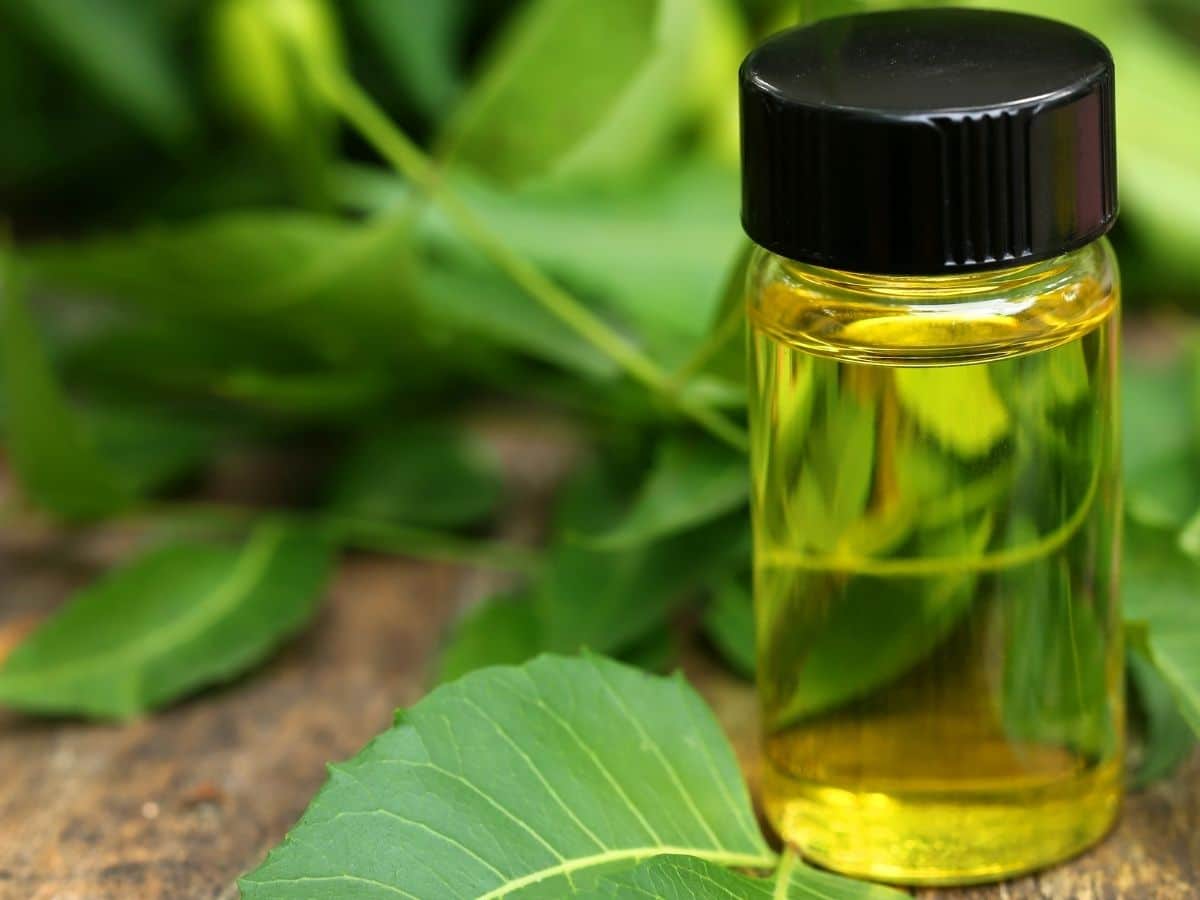
A natural and biodegradable oil extracted from the Neem tree, neem oil works as an insecticide and fungicide. Caterpillars, aphids, mealybugs, lacebugs, thrips, whiteflies, leafhoppers, cabbage loopers, leafminers, spider mites, and insect larvae are all impacted by neem. As you can see, it is an excellent all-purpose natural pesticide! It only works on soft-bodied insects, not any hard-bodied ones, like beetles.
Neem oil works in two ways – a spray of neem oil mixture will coat the plant's leaves. When the insect consumes the leaf, the oil disrupts their respiratory system and causes suffocation. Additionally, the natural insecticide in neem oil disrupts hormonal behaviors. This causes the insects to stop feeding, flying, and mating. After a while, they die off. Neem takes 24-72 hours to be fully effective, so be patient.
Beneficial insects potentially are affected as well, so use sparingly and only as needed. Also, spray it in the morning before bees are butterflies are out feeding.
The oil may cause skin irritations or allergic reactions, so use with caution. In large amounts, it is toxic, but the amount you use in the pesticide isn't enough to cause harm.
Formula:
Only use cold-pressed 100% Neem oil. Do not use store-bought neem oil pesticide mixes since they contain other chemicals and also rarely contain the natural insecticide.
- Mix 1 gallon of water with 1 tablespoon neem oil and 1 teaspoon dish soap.
- Shake well and put in a spray bottle.
- Reapply every 7-10 days, or as needed.
The Diatomaceous Earth Deterrent
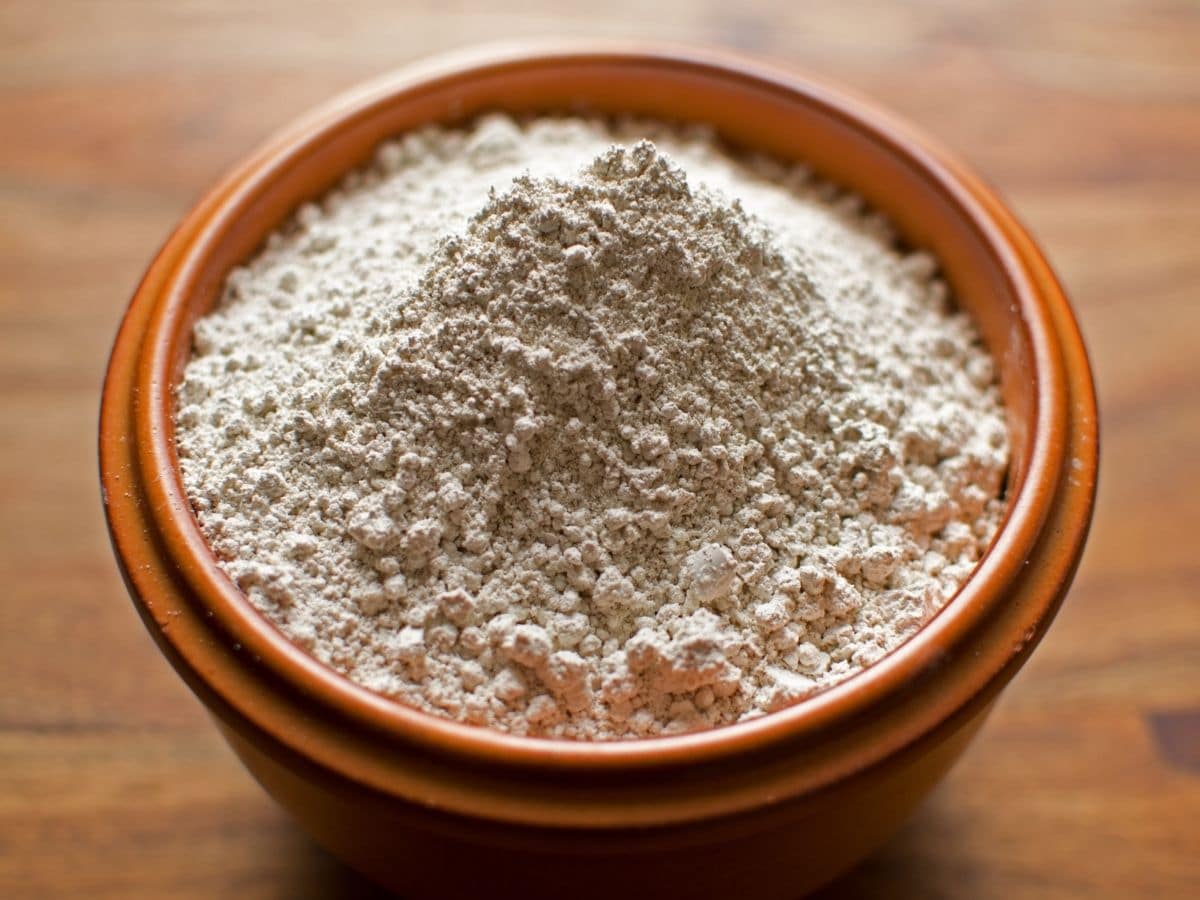
Don't let the long, seemingly unpronounceable name keep you away! [p.s. Die-a-tuh-may-shuhs]. Diatomaceous Earth is a sedimentary rock made by fossilized algae. It is powdered and sold in bags by weight. This unique substance consists of minuscule coarse grains, like tiny bits of sand, with razor-sharp edges.
Diatomaceous Earth kills bugs by piercing their outer layers and getting absorbed into the skin. The insects can't retain water after this happens, and so they become dehydrated and die. Little insects like ants, silverfish, pillbugs, ticks, and bedbugs are particularly susceptible to Diatomaceous Earth.
It's also effective in combating slugs and snails, as they dislike the feel of the sharp edges. Best of all, this substance is non-toxic to pets and humans. One significant downside to this pesticide, though, is that it does not work when wet. After a rainfall, it will need to be reapplied.
Diatomaceous Earth will also hurt beneficial insects, so apply it carefully, and never apply to flowerheads or where good insets dwell.
Formula:
Apply the dry powder on the infected plants or around the base of the plant. If you are applying a lot, we recommend wearing a mask because the powder can be inhaled and cause irritation. Make sure to get the food-grade version.
Mother Nature's Natural Pest Fighters
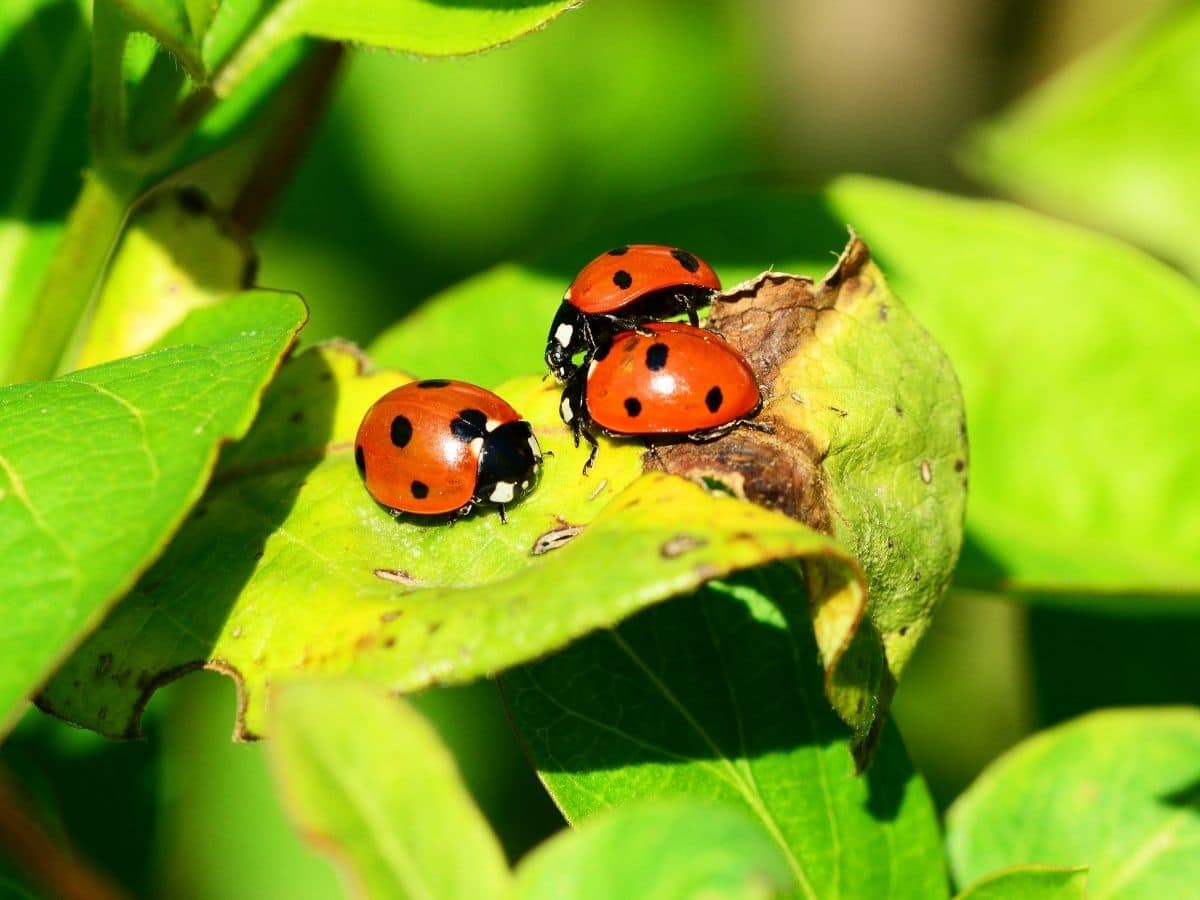
Ok, this isn't a pesticide mix, but one of the best time-honored and proven methods of removing pests from the garden is to employ predator insects. With good populations of pest-eating insects on your side, you won't need to use any type of pesticide that often. Learn how to increase the good bugs in your garden with this comprehensive guide. This is really the most organic pesticide there is.
Keeping the garden free of troublemakers eating and destroying your hard work using natural methods isn't difficult. Pests can be dealt with naturally, and now that you have the tools, it makes everything easier. Don't let those pesky bugs thwart your efforts and gardening goals!

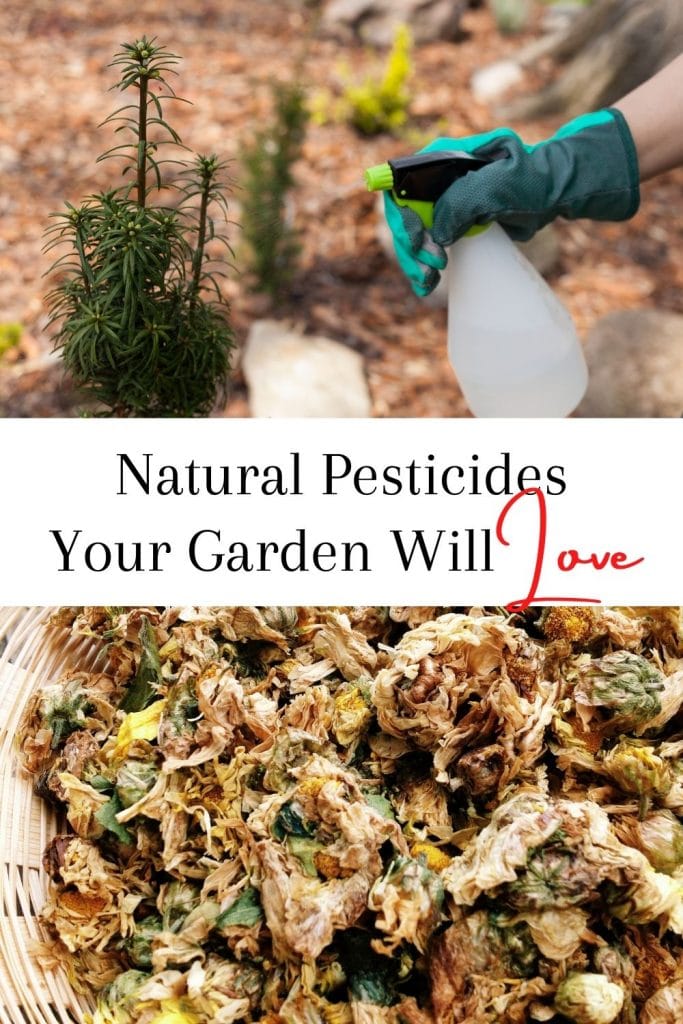
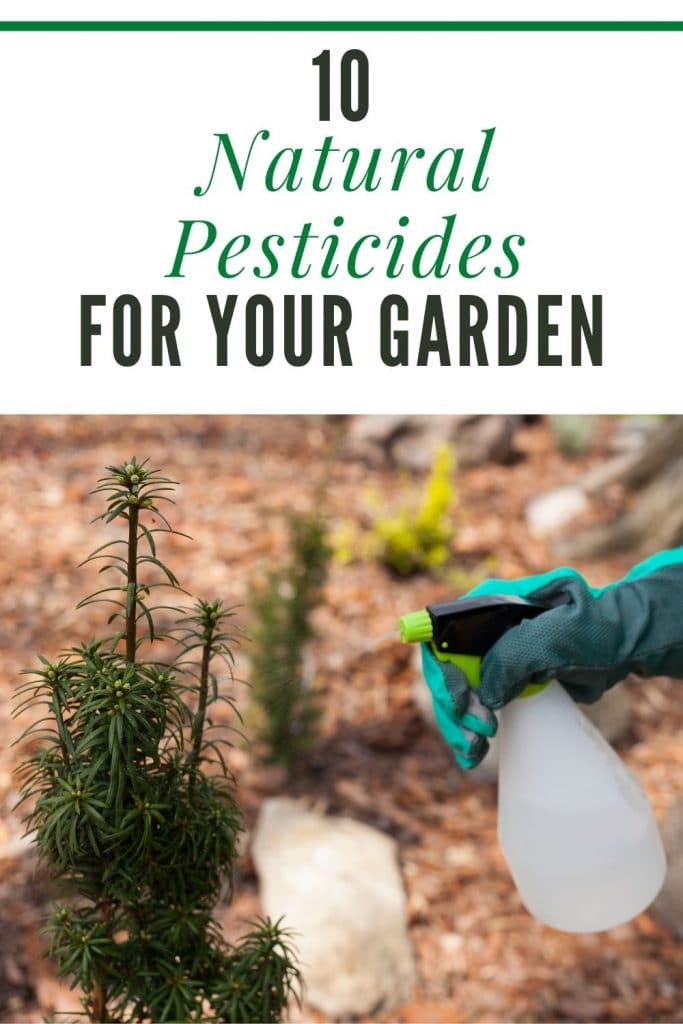
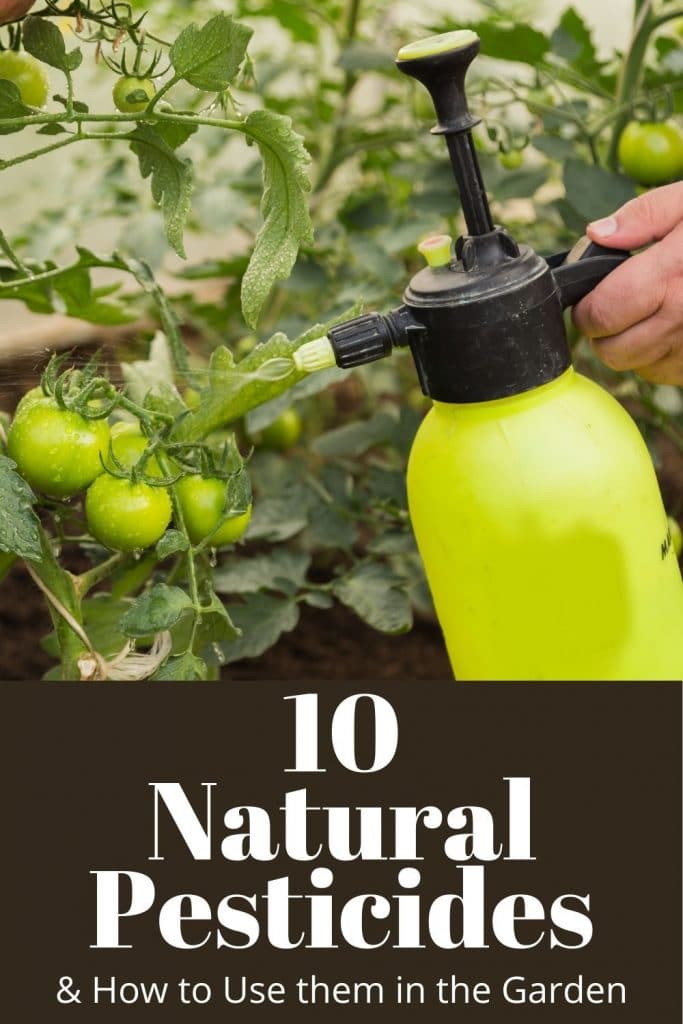
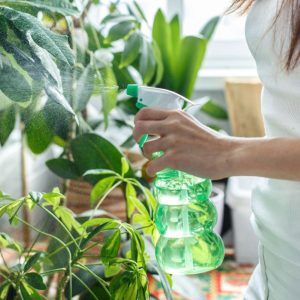
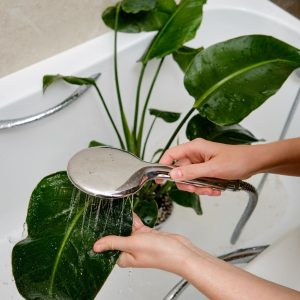
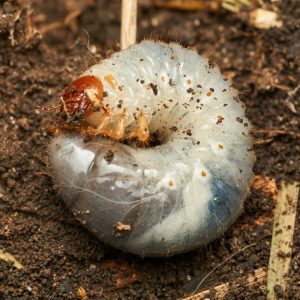
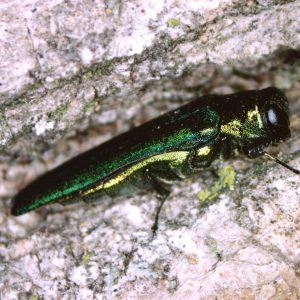
Mike
Do you know of something that will get rid of millipedes from my strawberries? They are eating 25% of my crop! I'm looking for something that can be applied on the strawberry plants and that can be rinsed off prior to serving to my family. Thanks..........
Cora Fields
This article had your answer "Diatomaceous Earth" which I use on all of my berry plants. Can also be used on vegies--works great for slugs too.